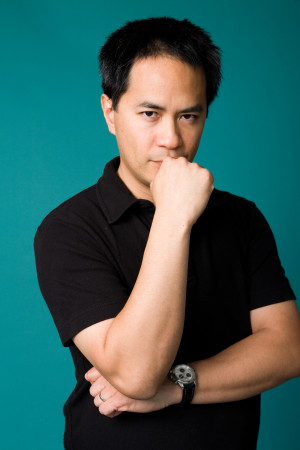 Writer, producer, and director Stanley Yung wrote for PBS’s Puzzle Place and produced Quentin Lee’s White Frog, Ethan Mao, and People I Slept With. He graduated from UCLA’s Film School, and his most recent work is on a feature film CHINK, the first ever about an Asian American serial killer.
Writer, producer, and director Stanley Yung wrote for PBS’s Puzzle Place and produced Quentin Lee’s White Frog, Ethan Mao, and People I Slept With. He graduated from UCLA’s Film School, and his most recent work is on a feature film CHINK, the first ever about an Asian American serial killer.
In this 8Questions session with Yung, what I found particularly striking was his discussion of how the serial killer main character, Eddy Tsai, feel so marginalized that violence comes up as the only way for him to feel empowered.
Get to know Yung and his thoughts on life, dreams, and racial discrimination:
What made you decide to pursue your current career?
Ever since I was a kid, I’ve always been inspired by the art of storytelling, and the cinematic medium was especially powerful for me. I grew up writing short stories, but it wasn’t until high school that I seriously considered becoming a filmmaker as a profession and started making my own little home movies. In many ways, it’s a career that chose me, because I can’t imagine myself doing anything else, and at this point in my life, I’m not really qualified to do much else. It’s been a tough grind over the years with more downs than ups to be honest, but getting the chance to direct CHINK has been a great reminder of why I became a filmmaker in the first place.
Who is your greatest inspiration?
I know it sounds cheesy, but it’s my mother. I have to credit (or blame) her for inspiring my love of movies. She used to drag me to see double features at an old second-rate movie house in downtown San Francisco called The Strand where I would watch completely age-inappropriate movies like THE GODFATHER 1&2 and MIDNIGHT COWBOY when I was only like six years old. The images I saw onscreen both haunted and inspired me and most likely led to my love of movies and moviemaking. Later I found out that she briefly worked in Hong Kong as a story editor for a film production company, so moviemaking was probably passed down through my genes as well. Beyond that, my mother grew up under very difficult circumstances in Communist China, struggled to immigrate to America, and made great sacrifices so that her children could follow their dreams, so I owe her a great deal.
Where do you see the Asian Pacific Islander American community in 10 years?
I don’t know about timelines. Asian Pacific Islanders have made great strides in America over the last decade, but I look forward to the day when we will no longer be content just to be included at the dinner table. I hope that in the near future we will be the ones driving the conversation and determining the future instead of just working hard to achieve other people’s aspirations.
What advice would you give the next generation of API aspiring to make it in entertainment?
Strive for your dreams and be willing to put in the hard work, but do it with your eyes wide open. Find your own definitions of “success” beyond the typical benchmarks of fame, money, and influence. And most importantly, find a way to make your first movie no matter what the obstacles are. Technology is accessible and affordable enough nowadays, so no one has an excuse not to make movies.
What is your goal with the film CHINK?
First and foremost, my goal as a filmmaker is always to tell stories that move people, and CHINK is no different. But I think it’s also a chance to tell a different kind of Asian American story that blends themes of identity politics with a genre that has mainstream crossover potential. I see the film as a twisted journey of self-discovery. It’s a warning for what can happen to a person who feels so marginalized and alienated that he believes he has no other choice than to resort to violence to feel empowered.
How do you feel people will respond to the intentionally offensive name?
I hope it will engender a lively debate about latent racism in contemporary American society. Racial epithets like “chink” have been given a lot of emotional power in my own subconscious after hearing them while I was growing up. I doubt anyone would ever call me “chink” to my face nowadays, but I’m amazed by how rampant racism is and how often it crops up in mainstream media – ESPN, Fox News, SATURDAY NIGHT LIVE, etc. “Chink” is not a term that I would ever want to embrace and reclaim, but I hope our movie can play a role in diminishing the insidious potency of the word.
What stereotypes will CHINK break and what new ones could it potentially create?
My intention is to destroy the model minority image and blow it out of the water by depicting the first Asian American serial killer on film. I hope that building a film around an Asian American male protagonist will still be empowering even if he is a bloodthirsty antihero. Besides, I would prefer that Asian American men be feared rather than belittled or patronized. I think the risk of creating any new negative stereotypes is slim considering the historical tide of racial stereotypes we’re currently swimming against.
What is your favorite Asian comfort food?
I grew up eating Won Ton Noodle Soup and always find it comforting as a late night snack. In fact just talking about it right now makes me crave it.
- Excited
- Fascinated
- Amused
- Disgusted
- Sad
- Angry








